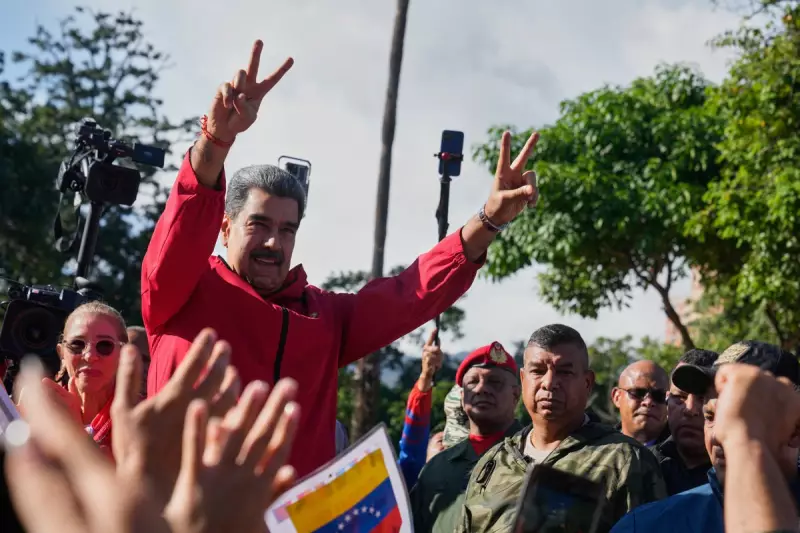
Venezuelan President Nicolás Maduro has dropped a political bombshell, claiming the Trump administration secretly offered to lift crushing economic sanctions in exchange for Caracas halting oil exports to China.
In a stunning revelation during his weekly television programme, Maduro detailed how backchannel communications between the two nations allegedly produced a dramatic proposal from Washington.
The Alleged Deal That Never Was
According to Maduro's account, Trump's team presented Venezuela with an ultimatum: stop shipping oil to Beijing, and watch US sanctions evaporate. The Venezuelan leader claims he flatly rejected what he described as an "immoral" proposition that would have compromised his nation's sovereignty.
"They made a very serious proposal through very secret channels," Maduro told viewers. "If we stopped selling oil to China, they would lift the sanctions. I said no."
White House Remains Silent
The White House has yet to respond to these explosive allegations, leaving political analysts and diplomatic circles buzzing with speculation about the credibility of Maduro's claims and their potential implications for US-Venezuela relations.
This revelation comes amid ongoing tensions between Washington and Caracas, with the US maintaining stringent economic sanctions against Venezuela's oil industry and government officials.
Broader Geopolitical Implications
The alleged proposal underscores the complex geopolitical chess game involving global energy markets, with China emerging as Venezuela's primary oil customer after US sanctions effectively closed American markets to Venezuelan crude.
Maduro's disclosure also raises questions about the extent of unofficial diplomatic channels between nations that maintain publicly hostile relations, suggesting that behind-the-scenes negotiations may be more active than previously understood.
As both nations navigate changing global alliances and economic pressures, this revelation adds another layer of complexity to Western Hemisphere politics and the ongoing struggle for influence in Latin America.





